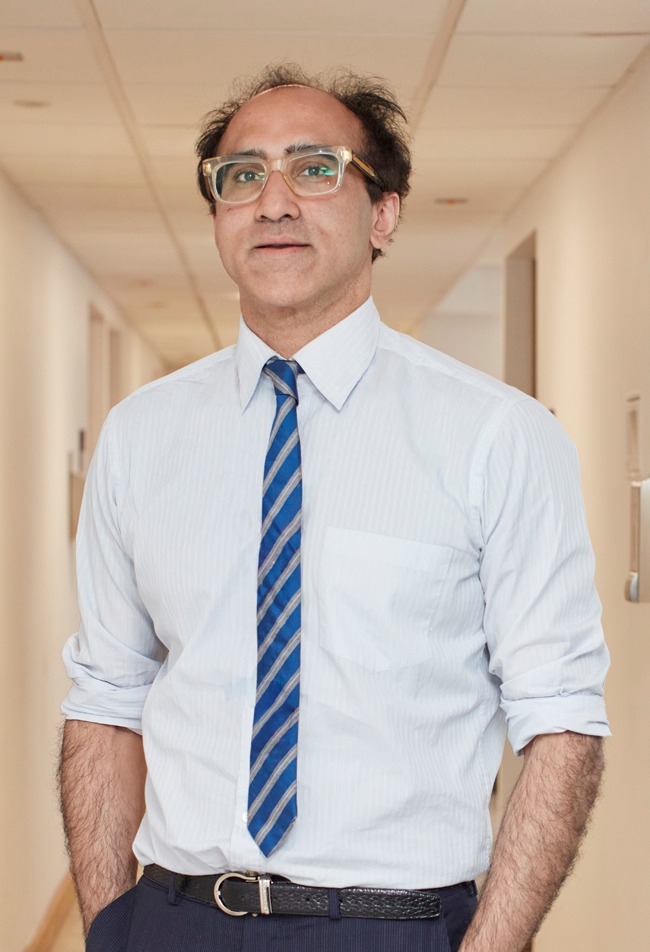The cutting-edge procedure involves fitting a 2mm photovoltaic microchip, thinner than a human hair, beneath the retina.
Patients wear special glasses equipped with a miniature camera that captures images and sends them via infrared light to the implant, which in turn stimulates the retina to relay visual signals to the brain.
The technology, known as the PRIMA system, was developed by a California biotechnology company and has been trialled across five European countries. In the recently published results of the international study, more than four out of five participants regained meaningful central vision — the ability to read letters, words and numbers after years of blindness.
From blindness to reading again
Among the British patients who took part in the study was 70-year-old Sheila Irvine from Wiltshire, who lost her sight decades ago due to advanced dry age-related macular degeneration (AMD), also known as geographic atrophy.
After receiving the implant at Moorfields, she can now read her mail and complete crosswords and Sudoku puzzles again.
“It’s beautiful, wonderful. It gives me such pleasure,” she said after flawlessly reading an eye chart during her assessment. “I am one happy bunny.”
The operation represents hope for the more than 250,000 people in the UK affected by this untreatable form of AMD. The condition destroys the macula — the small central part of the retina responsible for sharp, detailed vision — leaving patients with only blurry peripheral sight.
Pioneering and life-changing
Mr Muqit, who led the UK arm of the trial, described the results as “pioneering and life-changing technology.”
“This is the first implant to give patients meaningful vision they can use in daily life, such as reading and writing,” he said. “It’s a major step forward in restoring functional sight to people who had lost all hope.”
In the year-long European trial involving 38 patients, 32 received the implant and 27 regained the ability to read using their central vision. On standard eye-chart tests, participants improved by an average of five lines, equivalent to 25 additional letters.
How it works
The PRIMA implant is an ultra-miniature chip that converts light signals into tiny electrical pulses, which stimulate surviving cells in the retina. These signals then travel along the optic nerve to the brain, recreating the experience of sight.
Patients undergo extensive rehabilitation to learn how to interpret these new visual patterns — a process that blends neuroplasticity with digital vision technology.
The device does not restore natural sight, nor does it help those born blind whose optic nerve never developed. But for people who have lost central vision through degenerative disease, it represents a leap forward from decades of purely palliative care.
The surgeon behind the breakthrough
Mr Mahi Muqit PhD FRCOphth is a Consultant Vitreoretinal Surgeon at Moorfields Eye Hospital NHS Foundation Trust and an Associate Professor at the UCL Institute of Ophthalmology.
He trained at the University of Glasgow and earned a PhD from the University of Manchester, specialising in retinal imaging and diabetic eye disease. Over his career, he has become one of the UK’s leading experts in vitreoretinal surgery, medical retina, and artificial vision research.
His work has been instrumental in developing surgical methods for retinal detachment, macular repair and implantable vision prosthetics.
A long-time advocate for translational research, Mr Muqit’s mission has been to bridge the gap between laboratory innovation and real-world patient benefit — a philosophy now vividly realised in the success of the PRIMA implant.
Readers can learn more about his work and philosophy in his video, Mahi Muqit – Eye Surgeon on Restoring Sight.
A new horizon for artificial vision
While the implant is still awaiting regulatory approval before it can be offered through the NHS, the early outcomes have raised optimism among clinicians and patient groups alike. Experts say it is the most promising advance yet for patients with dry AMD, a condition long considered untreatable.
Mr Muqit believes that with continued refinement and cost-reduction, the implant could become available to NHS patients within the next few years. Future generations of the device are expected to offer wider fields of view, improved image processing and integration with adaptive artificial-intelligence systems to further enhance visual interpretation.
“Technology is moving so fast,” said Sheila Irvine. “It’s amazing that I’m part of it.”
For patients once consigned to permanent blindness, the return of the written word is nothing short of miraculous — and for Mr Muqit and his team at Moorfields, it is a glimpse of a future where sight may one day be fully restorable.
Media Contact
Company Name: Retina Surgeon
Contact Person: Media Relations
Email: Send Email
Country: United Kingdom
Website: https://www.retinasurgeon.uk.com/







